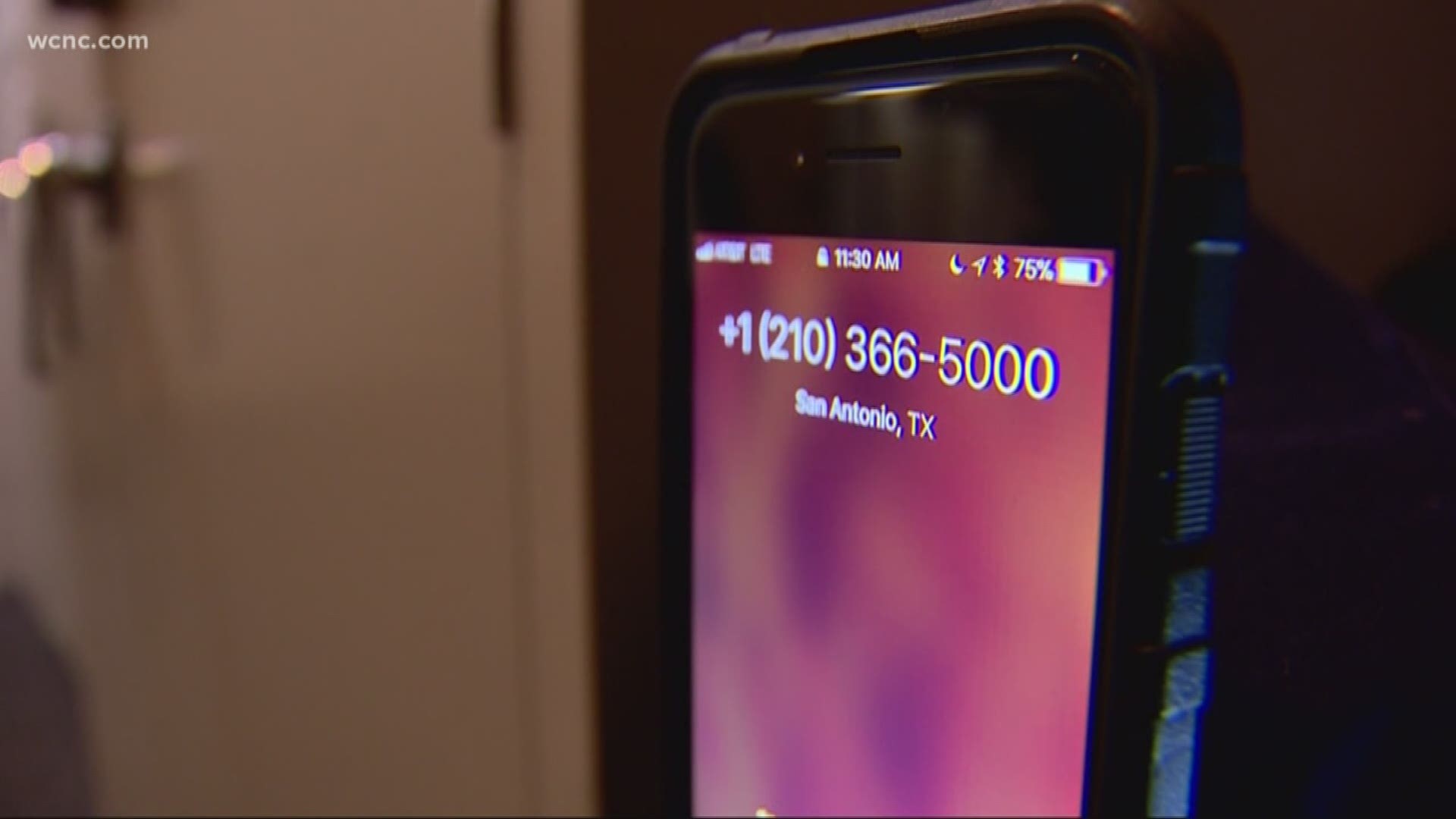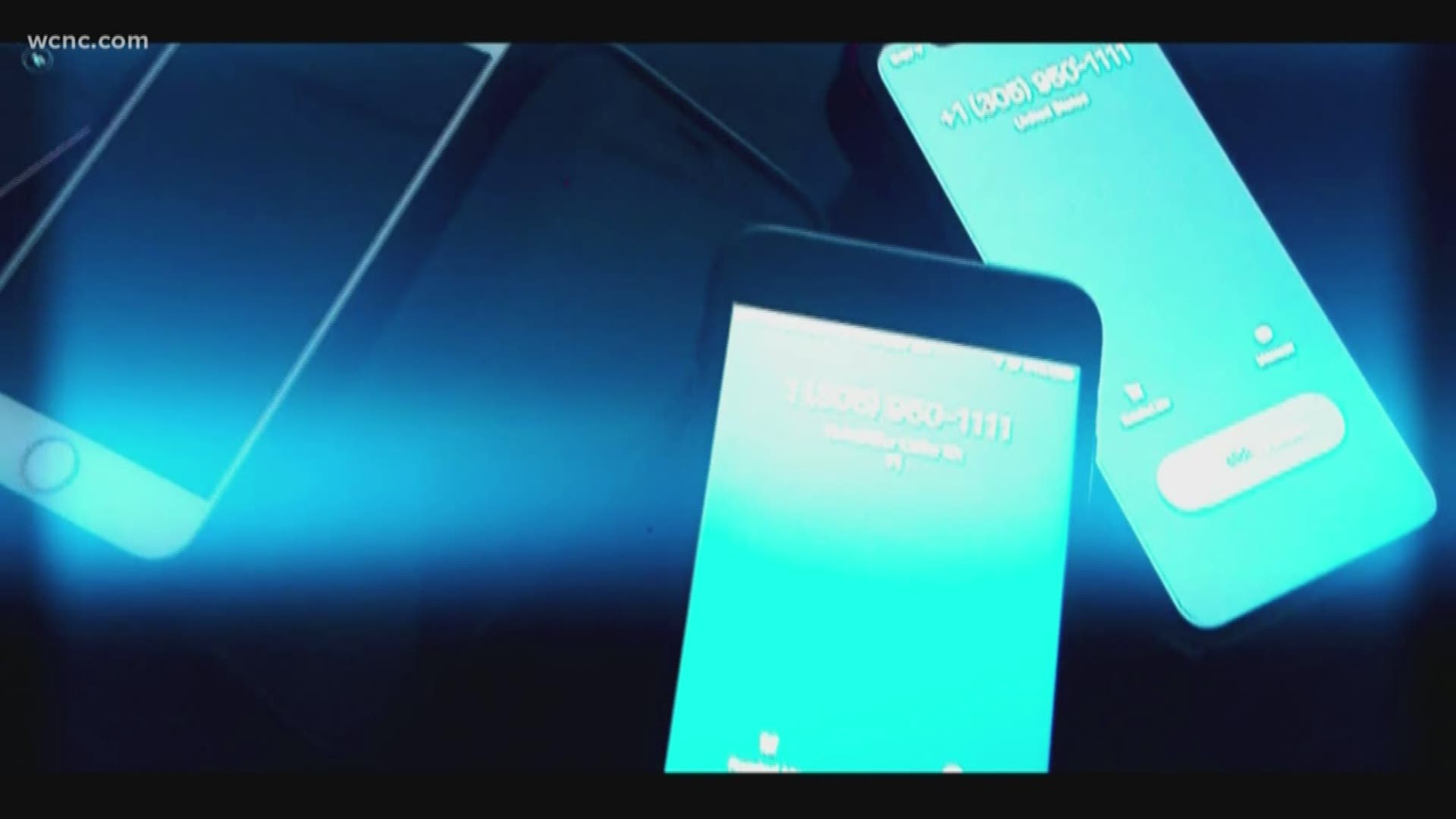CHARLOTTE, N.C. — North Carolina leaders are promising a new bi-partisan law signed by the governor will protect us from annoying robocalls, but the state's top law enforcement officer said that is unlikely, at least for now.
"I think the law is certainly well-intentioned, it's a good idea, we want as many tools as we can get, but frankly this isn't a question of is this legal or not legal," Attorney General Josh Stein said. "These guys are breaking the law and they know it. The question is can we catch them and can we block them and that's on the phone companies to help law enforcement like me do that work."
Effective December 1, the Truth in Caller ID Act requires telemarketers to use their real names and numbers or their company's real contact information.
House leadership said the bill creates a civil cause of action against telemarketers for violating the rules, so rather than set fines, the law allows courts to decide on penalties.
Some lawmakers are on the record saying the new law will bring overdue accountability and will put an end to spam calls, but Stein said stopping the problem really doesn't come down to the law. Instead, it comes down to technology.
"These calls are already against the law and the bad guys know it," he said. "They persist in doing it because they are so hard to catch."
Congress passed a similar federal law a decade ago and only in the last year issued a few major fines. South Carolina passed a law with the same intent last year and a spokesperson said the attorney general there has not yet pursued legal action.
Robocall Index shows South Carolina is on pace to see even more robocalls this year compared to last.
In July alone, the Carolinas experienced an estimated 265 million robocalls, up from June, according to RoboCall Index. The website shows North Carolina and the 704 area code are among the most targeted in the country.
In response to the constant problem, attorneys general from the Carolinas and dozens of other states are pushing for industry change. In North Carolina alone, Stein said he has collected nearly 12,000 signatures for a Stop Robocalls Petition.
Stein said the goal is to get phone companies to enable technology that will screen out these calls and make software available to states, so they can have better luck finding the so-called spoofers. He said that would allow states to actually put new laws like the Truth in Caller ID Act into practice.
"We're calling upon the phone companies to really help us protect the people from these unwanted calls," he said.
The FCC cleared the way for phone carriers to start automatically blocking robocalls earlier this year and AT&T, T-Mobile and Verizon have all said they've taken action by offering call blocking and spam warnings.
Just last month, AT&T announced its plans to equip millions of phones at no charge.
"It's part of the continuing effort by industry, regulators and law enforcement to reduce illegal and unwanted robocalls," AT&T said. "If you're an AT&T Mobility customer, you don't have to wait for the fraud blocking to be added. AT&T Call Protect is available right now for download as an app, or by going into your account settings on my AT&T and turning it on. We're attacking illegal and unwanted robocalls from as many angles as possible."
Also in July, T-Mobile announced its technology had blocked 3.5 billion scam calls and warned customers of 15 billion 'Scam Likely' calls.
"T-Mobile customers have choices when it comes to dealing with robo-spam," T-Mobile said. "Every postpaid T-Mobile customer and Metro by T-Mobile customers get free Scan ID included, so they get warned of a 'Scam Likely' call and can decide when to pick up - or get the satisfaction of hitting 'decline' on scammers. But by simply dialing #662# to activate free Scam Block, these customers will never see another 'Scam Likely' call again."
Meanwhile, Verizon also announced new ways it's battling robocalls.
"It's all about providing our customers with more choice and control," Verizon said in June. "Verizon plans to do what it takes to protect our customers from these annoying calls. Verizon's wireless customers can already choose to automatically block robocalls for free using our industry-leading Call Filter service, which sends the blocked calls directly to voicemail based on whatever category that the consumer selects. We’re also in the process of making our CallFilter service even better. As we continue to evolve the service, we intend to take advantage of the new flexibility the FCC is giving us. With the help of these new FCC rules, we’ll be able to provide our customers the benefits of spam alerts and blocking more broadly and conveniently."


